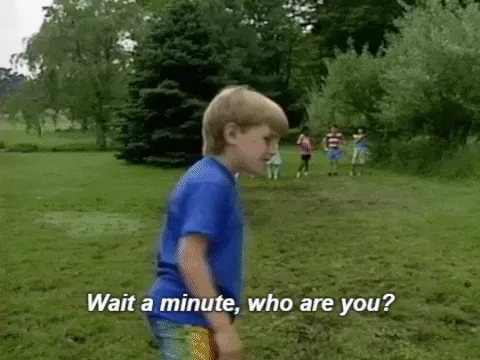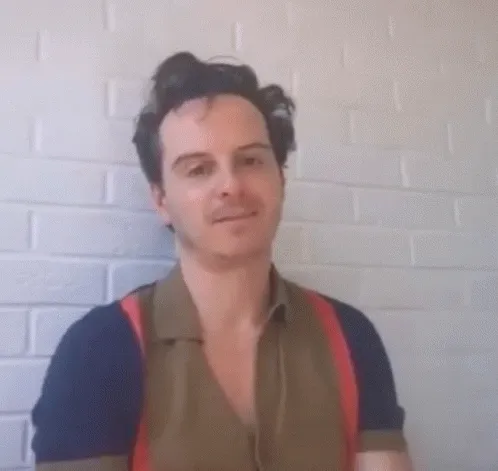This content originally appeared on HackerNoon and was authored by Madd Like Mojo
So here’s a little thought exercise…
\ Imagine Netflix only worked in the country where you signed up - Yeah, you heard me.
You cross into another timezone, and boom — your account just disappears. Sounds ridiculous, right? Well, that’s technically how traditional banking works.
Money is one of the most global things in existence. People move, work remotely, freelance across borders, and send money back home daily. Yet banks still act like every wire transfer needs a visa and a background check.
Many a time, I, and A LOT of my colleagues, friends and family, battle with similar problems (the banking issue of course, not Netflix).
And we’ve all individually experienced this as well; in one way or the other.
Take these instances:
#Instance 1: You tried wiring money cross-continentally but the fees were unsurprisingly matching up to the initial amount. The reason? Something about ‘exchange rate markups’.
\
#Instance 2: You’re freelancing on Upwork from say Nairobi, and you’re basically waiting weeks for PayPal to “decide” if you can access your funds or not.
\
#Instance 3: Migrant worker in Europe? Expect paperwork stacks taller than you just to remit money back home.
Like a friend once said, and I concurred;
\
“The banking system is like an old border guard yelling, “Your money can’t pass without my ==stamp==!” ”
\ But come Gluwa, an active by-stand RWA platform; and they’ve walked in our shoes, they feel the same way we do, and they decided to do something about it.
\ In your mind…
Gluwa who???

Think of Gluwa as the fintech version of an airport fast-track lane. It doesn’t replace banks outright — it just makes them less… well, painful.
At its core, Gluwa is building borderless financial infrastructure powered by its very own blockchain - Creditcoin. It’s not just about payments, but also credit, lending, and investments that can move seamlessly across countries.
Their big idea: if the internet doesn’t stop at borders, why should your money?
And they’re not just tweeting about it. Gluwa is actively partnering with fintechs, credit startups, and even governments (yep, even the CBN had to look twice in their direction).
And for the first time in history, the mass populace are actually fully onboard with something “related to the government” (especially for a blockchain industry).
Here’s what some Reddit voices had to say about Gluwa:
“Gluwa is a borderless financial platform… good for spreading the blockchain where its most needed.”
“They’re offering 5% APY paid daily… this is one of the few models where you know people are going to keep taking advantage.”
“They bring a virtuous cycle of mutual benefits… centered on people.”
\
\
The Secret Recipe: Open Finance
I’m sure you’ve probably heard of “Open Banking” - where financial institutions allow third-party apps to plug in through APIs (if you hadn’t, then I just told you what it means). So basically, Open Finance takes that same process, cranks it up to 11, and slaps it onto a blockchain.
\
So How Does Gluwa Plan to Implement This Open Finance Dream?
Gluwa’s mission is to build a borderless financial ecosystem where people can access credit, save, invest, and transact globally - without needing traditional banks or even passports.
And here’s how they plan to do it-:
\
Phase 1-: Creditcoin
At the very core of their vision is Creditcoin, a blockchain protocol that functions as the trust layer of the entire system. But unlike traditional credit bureaus that lock financial histories inside centralized databases, Creditcoin records lending transactions on-chain in a way that is transparent, permanent, and portable. This matters because in many emerging markets, people either lack a credit history entirely or are at the mercy of fragmented local institutions. So, by storing this data on a public blockchain, Gluwa makes it possible for individuals to carry their financial reputation with them, whether they are borrowing in Lagos today or in Manila tomorrow. It removes the need for banks or governments to play gatekeepers, and instead makes creditworthiness something that can be verified anywhere by anyone.
\
Phase 2-: Credal
But a transparent credit record isn’t very useful without capital flowing into the system, which is where Credal enters the picture. Credal is Gluwa’s global investment platform, designed to connect investors who have money with borrowers who need it—often in parts of the world that traditional finance ignores. Imagine a small business owner in Kenya needing a loan to buy equipment. In the past, she might have been denied outright due to the absence of a recognized credit score. With Credal, her request can be funded by an investor sitting in New York or Seoul who is looking for alternative yield opportunities. The transaction doesn’t happen in the dark; it is recorded on Creditcoin, providing a transparent trail of activity that builds trust for both sides. The borrower gets access to capital, the investor gets exposure to a new market, and the entire interaction strengthens the open finance ecosystem.
\
Phase 3-: Triple Combination

Tying it all together is the Gluwa platform itself - which acts as the connective tissue. Gluwa bridges fiat, stablecoins, and digital assets so that people can transact across borders without friction. It is this infrastructure that makes the entire system more than just a concept.
By linking investors, borrowers, and fintech partners into one network, Gluwa transforms what could otherwise be a loose collection of tools into a functioning financial universe. In practice, this means that a worker in Nigeria could receive funds from an investor in the U.S., repay their loan in stablecoins, and have that repayment recognized globally as part of their verified financial record.
\ Creditcoin ensures transparency and accountability, Credal fuels the system with liquidity, and the Gluwa platform makes it all accessible on a global scale. Together, they form the backbone of a borderless financial world where opportunity no longer stops at national borders.
It’s finance that acts like the internet: open, borderless, and fast.
\ \
Real-Life Gluwa Moves
Proof that this isn’t just theory. Gluwa’s already pulling some big swings on a global scale:
- Partnership with Nigeria’s CBN: Using blockchain-powered credit scoring to expand access to loans through the eNaira (yes, the same eNaira that was struggling until Gluwa came along).
- Credit for the unbanked: Through Credal, Gluwa is giving millions of people who’ve never had a formal bank account a way to prove creditworthiness.
- Cross-border capital flow: Gluwa investors in one country can back loans in another, transparently tracked on-chain. That’s money teleporting across borders without friction.
Basically, Gluwa’s not promising “soon”. They’re already stitching together the fabric of borderless finance, one deal at a time.
\ \
The Big Dream: A Truly Open Financial Internet
Picture this:
A freelancer in Nairobi finishes a design project for a startup in Seoul. They get paid instantly in digital dollars through Gluwa. They use their Gluwa credit score to secure a microloan for expanding their small business. A lender in San Francisco funded that loan, watching repayments stream back transparently in real time.
No passports. No $40 “wire transfer fees.” No waiting weeks for middlemen banks to “verify.”
That’s Open Finance in action.
And here’s the kicker: this doesn’t just help individuals. It creates a more liquid, global credit ecosystem — one where capital can actually find its way to the people who need it, not just sit idly in Western markets.
\ \
Going Beyond Banking: A Passport-Free World
Zoom out, and the repercussions are massive. Gluwa isn’t just building fintech tools. It’s laying the groundwork for a future where financial identity is portable and universal.
- Your creditworthiness could follow you like your email address.
- Your savings could move as easily as a Spotify playlist.
- Your loan repayments could build reputation across borders, not just at one dusty bank branch.
Gluwa’s approach says: “Why should your money need a passport when the blockchain already walks everywhere?” - pun intended.
And here’s the twist: by partnering with governments and institutions (instead of dodging them), Gluwa is playing the long game.
They’re not trying to kill the system; they’re upgrading it ✨
\ \
Burn the Borders🔥 (Financially, Not Literally)
At its heart, Gluwa’s mission is simple: make money work like the internet. Fast, global, accessible. No borders, no passports, no permission slips from middlemen banks.
The vision is bold. The execution? Already underway. And if it succeeds, Gluwa won’t just be another fintech — it could be the blueprint for the next global financial system.
\ \ Be sure to subscribe so you don’t miss my next post…
Till next time, I remain,
Mojo Monkey🐒
\
This content originally appeared on HackerNoon and was authored by Madd Like Mojo
Madd Like Mojo | Sciencx (2025-09-03T04:11:48+00:00) Borderless Banking – What is It, and What’s in it for You and I?. Retrieved from https://www.scien.cx/2025/09/03/borderless-banking-what-is-it-and-whats-in-it-for-you-and-i/
Please log in to upload a file.
There are no updates yet.
Click the Upload button above to add an update.
